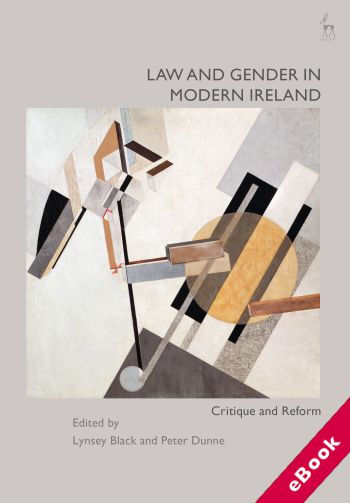
The device(s) you use to access the eBook content must be authorized with an Adobe ID before you download the product otherwise it will fail to register correctly.
For further information see https://www.wildy.com/ebook-formats
Once the order is confirmed an automated e-mail will be sent to you to allow you to download the eBook.
All eBooks are supplied firm sale and cannot be returned. If you believe there is a fault with your eBook then contact us on ebooks@wildy.com and we will help in resolving the issue. This does not affect your statutory rights.
In recent years, the intersection of law and gender has assumed a growing importance in Irish social and political life. Debates over reproductive justice, increased rights for lesbian, gay, bisexual, transgender, queer/questioning and intersex (LGBTQI) persons and the historic mistreatment of women and young girls have dominated public discourse, and encouraged Irish society to re-examine long-unchallenged gender norms. While many traditional flashpoints, such as abortion and prostitution/sex work, remain, new questions, such as surrogacy, online-harassment and the gendered-experience of Direct Provision, have emerged. As policy-makers seek to enact reforms, they face a population with increasingly polarised perceptions of gender and a legal framework ill-equipped for the realities of modern Irish life.
This edited volume directly addresses modern Irish debates on law and gender. Providing an overview of the existing rules and standards, as well as exploring possible options for reform, it stands as a definitive statement of the law in Ireland and an invaluable resource for pursuing gendered social change. While the collection will incorporate a descriptive methodology to explain current statutes, case law and administrative practices, the editors encourage critical gender, queer and race perspectives. It is essential reading for all who are interested in law and gender studies, and law in Ireland.